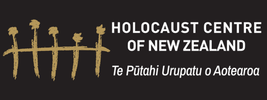ANTISEMITISM OVERVIEW
Religious antisemitism
In an all-encompassing Christian (predominantly Catholic) world, Jews who believed in the one God and not a trinity, or who did not subscribe to an infallible Church were outsiders (i.e. not part of Christian society). Jews were alternately persecuted and protected, but always ‘singled out’.
Political antisemitism
After the 17th century, in the wake of religious wars, religious discrimination was deemed less acceptable. The power of the Church declined, alternative forms of religious worship gained ground, and in the Age of Enlightenment (leading to the French Revolution), Jewish emancipation and the integration of Jews into European society gained support. This, however, aligned the issue of Jewish emancipation with radicalism (the revolutionary spirit), and thus both conservative and clerical forces vigorously opposed it.
Social antisemitism
Due to economic and social changes (particularly in Eastern Europe), Jews migrated from small rural settlements to major centres where they created communities of outstanding intellectual, social and economic quality. This, however, aroused the jealousy and antagonism of Christians - also similarly dislocated by these social changes. Members of the old craft guilds resented the competition of Jewish craftsmen, Christian money-lenders resented the historically strong position of Jewish bankers, and the intellectual middle class resented the dramatic success of Jewish intellectuals.
Radical philosophers considered Jewish attachment to religion as contrary to the spirit of enlightenment, while conservatives associated Jews with radicalism.
Racial antisemitism
The notion that Jews were a distinct race has its roots in the racial theories propounded by British philosopher, H. S. Chamberlain, which depicted history as a struggle between Aryan and Semitic races. Prior to this, Jews who converted to Christianity were accepted as part of Christian society.
National antisemitism
The idea of the ‘Nation’ and 'Nation State’ was a product of the Napoleonic wars. Nationalist anti-Semites thought of Jews as outsiders with no share in the nation’s heritage. Their influence in the arts was considered corrupting by, for example, German composer Richard Wagner, and others.
Antisemitism of Envy
Due to the Jewish tradition of charity and close family ties, societies from which they were excluded envied the support Jewish communities provided to their poor, including small entrepreneurs who tried to better themselves. They also envied the international network that Jews established through family and community connections, which enabled them to be outstandingly successful in international trade and banking. The tradition of Jewish literacy also helped Jews outperform their neighbours in arts and letters
In an all-encompassing Christian (predominantly Catholic) world, Jews who believed in the one God and not a trinity, or who did not subscribe to an infallible Church were outsiders (i.e. not part of Christian society). Jews were alternately persecuted and protected, but always ‘singled out’.
Political antisemitism
After the 17th century, in the wake of religious wars, religious discrimination was deemed less acceptable. The power of the Church declined, alternative forms of religious worship gained ground, and in the Age of Enlightenment (leading to the French Revolution), Jewish emancipation and the integration of Jews into European society gained support. This, however, aligned the issue of Jewish emancipation with radicalism (the revolutionary spirit), and thus both conservative and clerical forces vigorously opposed it.
Social antisemitism
Due to economic and social changes (particularly in Eastern Europe), Jews migrated from small rural settlements to major centres where they created communities of outstanding intellectual, social and economic quality. This, however, aroused the jealousy and antagonism of Christians - also similarly dislocated by these social changes. Members of the old craft guilds resented the competition of Jewish craftsmen, Christian money-lenders resented the historically strong position of Jewish bankers, and the intellectual middle class resented the dramatic success of Jewish intellectuals.
Radical philosophers considered Jewish attachment to religion as contrary to the spirit of enlightenment, while conservatives associated Jews with radicalism.
Racial antisemitism
The notion that Jews were a distinct race has its roots in the racial theories propounded by British philosopher, H. S. Chamberlain, which depicted history as a struggle between Aryan and Semitic races. Prior to this, Jews who converted to Christianity were accepted as part of Christian society.
National antisemitism
The idea of the ‘Nation’ and 'Nation State’ was a product of the Napoleonic wars. Nationalist anti-Semites thought of Jews as outsiders with no share in the nation’s heritage. Their influence in the arts was considered corrupting by, for example, German composer Richard Wagner, and others.
Antisemitism of Envy
Due to the Jewish tradition of charity and close family ties, societies from which they were excluded envied the support Jewish communities provided to their poor, including small entrepreneurs who tried to better themselves. They also envied the international network that Jews established through family and community connections, which enabled them to be outstandingly successful in international trade and banking. The tradition of Jewish literacy also helped Jews outperform their neighbours in arts and letters
The IHRA working definition of antisemitism
The Holocaust Centre of New Zealand adopts the International Holocaust Remembrance Alliance (IHRA)
non-legally binding working definition of antisemitism.
“Antisemitism is a certain perception of Jews, which may be expressed as hatred toward Jews. Rhetorical and physical manifestations of antisemitism are directed toward Jewish or non-Jewish individuals and/or their property, toward Jewish community institutions and religious facilities.”


